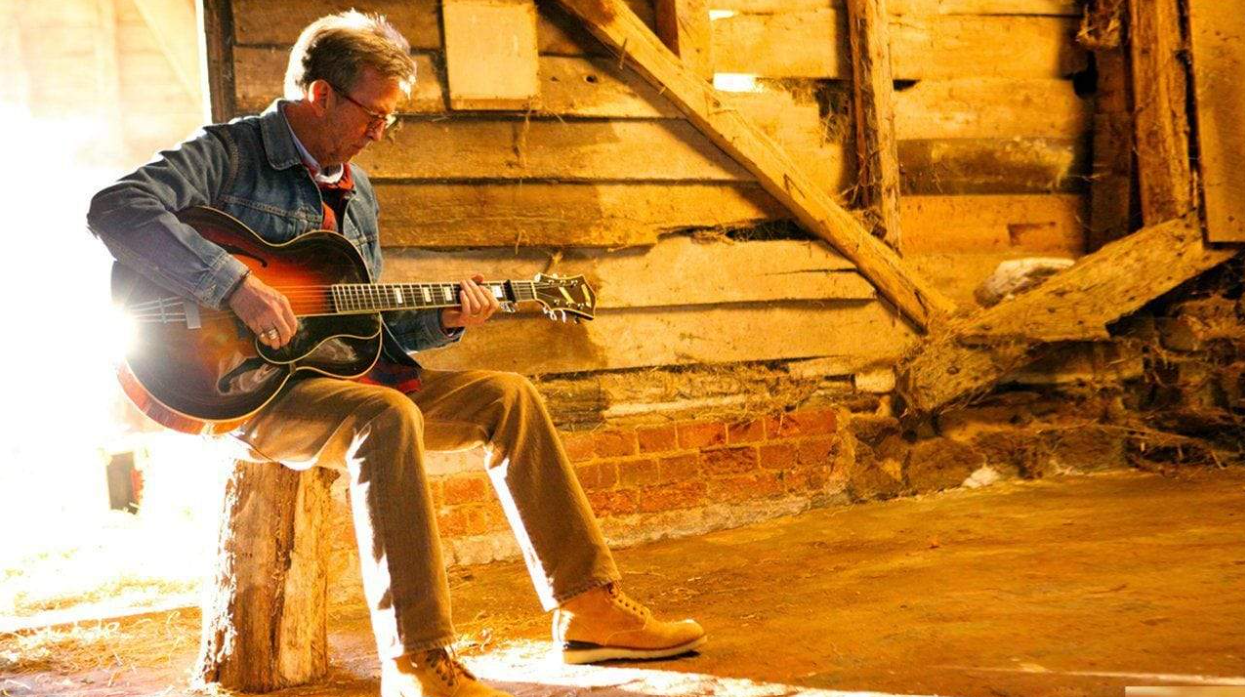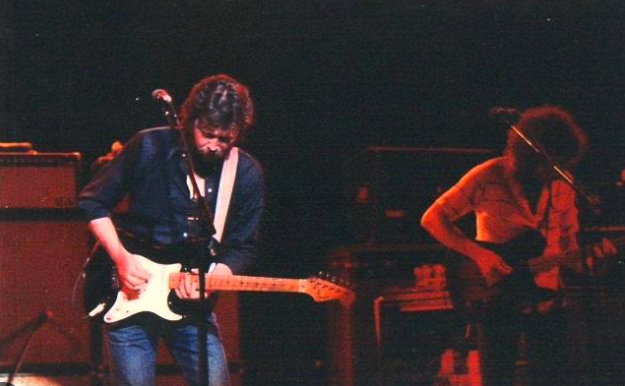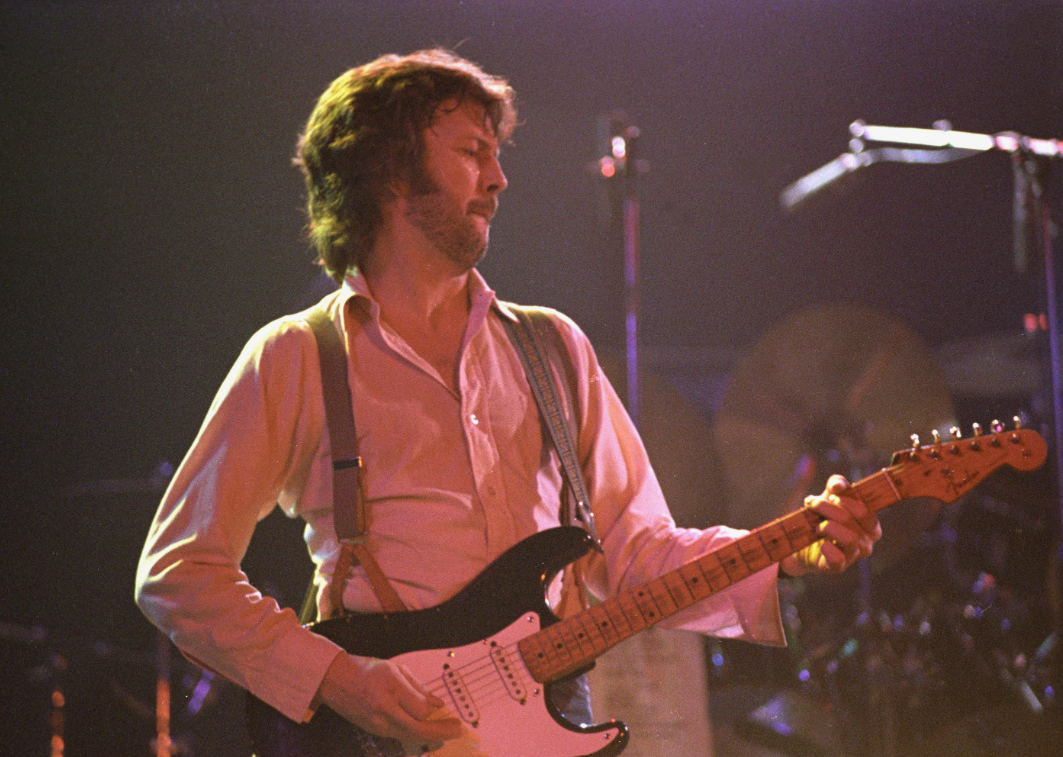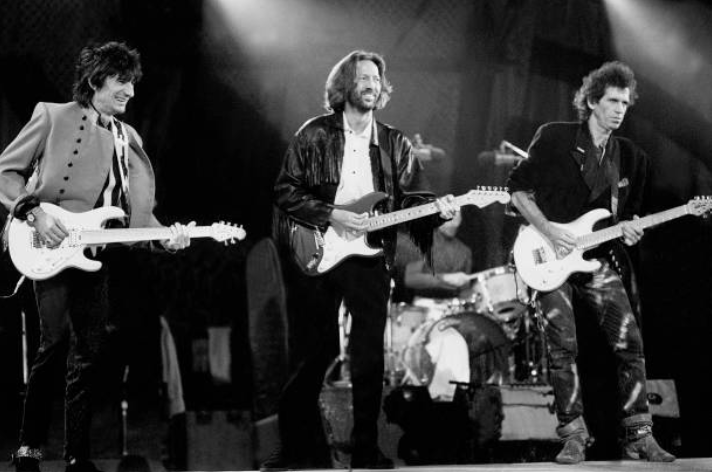Rebel Rhythms: Exploring 'I Shot the Sheriff' by Eric Clapton
(watch the video below)
"I Shot the Sheriff," written by Bob Marley and famously covered by Eric Clapton, stands as one of the most iconic songs in the history of popular music. Its infectious rhythm, compelling lyrics, and the emotional depth of Clapton's rendition have captivated audiences for decades. This essay embarks on an extensive exploration of the song, delving into its historical context, lyrical themes, musical elements, and its enduring impact on culture and society. Through this analysis, we aim to unravel the multifaceted layers of "I Shot the Sheriff" and understand its significance in the realm of music and beyond.
"I Shot the Sheriff" is a song that transcends the boundaries of genre, time, and cultural background. Originally penned by the legendary Bob Marley and later popularized by Eric Clapton in his 1974 rendition, the song has etched its mark in the annals of music history. Its enigmatic narrative, coupled with its infectious reggae-infused melody, has resonated with millions of listeners worldwide. In this essay, we embark on an extensive journey to dissect the various elements that contribute to the song's enduring legacy.

To truly appreciate the essence of "I Shot the Sheriff," it's imperative to delve into the historical backdrop against which the song emerged. The 1970s marked a tumultuous period in global history, characterized by social upheaval, political unrest, and cultural revolutions. Within this milieu, Bob Marley, a Jamaican musician and activist, rose to prominence as a voice of the oppressed and marginalized.
Marley's lyrics often reflected the socio-political realities of his time, addressing themes of resistance, empowerment, and social justice. "I Shot the Sheriff," released in 1973 as part of Marley's album "Burnin'," encapsulated the spirit of defiance against oppressive authority. The song's protagonist, faced with persecution and harassment, takes matters into his own hands, symbolizing a rebellion against injustice.
In 1974, Eric Clapton, already a revered figure in the music industry, recorded a cover of "I Shot the Sheriff" for his album "461 Ocean Boulevard." Clapton's rendition infused the song with his signature blues-rock style while retaining the essence of Marley's original composition. The decision to cover a reggae song was unconventional for Clapton but proved to be a masterstroke, propelling "I Shot the Sheriff" to unprecedented heights of commercial success.
At its core, "I Shot the Sheriff" narrates the tale of a man who finds himself at odds with law enforcement after allegedly shooting the sheriff. The lyrics, though seemingly straightforward, encompass deeper thematic layers that resonate with broader societal issues. The protagonist's assertion, "I shot the sheriff, but I swear it was in self-defense," serves as a metaphor for resisting oppression and asserting one's autonomy in the face of tyranny.

The sheriff, representing the oppressive arm of authority, becomes a symbolic figure in the narrative, embodying the systemic injustices that pervade society. The protagonist's act of defiance, while literal in its interpretation, carries broader implications of challenging institutionalized power structures and advocating for individual agency.
"I Shot the Sheriff" is distinguished by its infectious rhythm, characterized by the distinctive reggae groove that underpins the entire composition. Marley's original version incorporates traditional reggae instrumentation, including the pulsating bassline, rhythmic guitar strumming, and vibrant percussions. Clapton's cover retains these essential elements while infusing his bluesy guitar licks and soulful vocals, creating a fusion of styles that transcends musical boundaries.
The song's arrangement is meticulously crafted, with dynamic shifts in tempo and intensity that mirror the ebb and flow of the narrative. The interplay between instrumentation and vocals creates a sense of urgency and emotional resonance, drawing listeners into the protagonist's journey of defiance and redemption.
"I Shot the Sheriff" has left an indelible mark on popular culture, serving as a rallying cry for social justice and individual empowerment. Its timeless message of resistance resonates as strongly today as it did upon its initial release, reflecting the enduring relevance of Marley's lyrics and Clapton's interpretation.

Beyond its musical significance, "I Shot the Sheriff" has sparked discussions on issues ranging from police brutality to racial inequality, cementing its status as a cultural touchstone. The song's influence extends beyond the realm of music, inspiring artists, activists, and thinkers to confront injustice and advocate for positive change.
In conclusion, "I Shot the Sheriff" stands as a testament to the transformative power of music to transcend barriers, unite disparate voices, and challenge the status quo. Bob Marley's original composition, coupled with Eric Clapton's soulful rendition, has etched its mark in the collective consciousness of generations, serving as a beacon of hope and resilience in the face of adversity. As we continue to navigate the complexities of the modern world, the timeless message of "I Shot the Sheriff" reminds us of the enduring power of human agency and the universal pursuit of justice and freedom.
Video
Lyrics
Let's sing along with the lyrics !
I shot the sheriff
But I didn't shoot no deputy
Oh, no, oh
I shot the sheriff
But I didn't shoot no deputy
Ooh, ooh, ooh (yeah)
All around in my hometown
They tryin' to track me down, yeah
They say they want to bring me in guilty
For the killing of a deputy
For the life of a deputy
But I say
Oh, now, now, oh
I shot the sheriff (the sheriff)
But I swear it was in self defense (no, no)
Ooh, ooh, ooh (yeah, I said)
I shot the sheriff (oh, Lord)
And they say it is a capital offense (oh now, yeah)
Ooh, ooh, ooh (yeah, hear this)
Sheriff John Brown always hated me
For what? I don't know
Every time I plant a seed
He said, "Kill it before it grows"
He said, "Kill them before they grow"
And so, and so
Read it in the news
I shot the sheriff (oh, Lord)
But I swear it was in self defense (where was the deputy?)
Ooh, ooh, ooh (I said)
I shot the sheriff
But I swear it was in self defense
Yeah (ooh)
Freedom came my way one day
And I started out of town, yeah
All of a sudden I saw Sheriff John Brown
Aiming to shoot me down
So I shot, I shot, I shot him down
And I say
If I am guilty I will pay
I shot the sheriff (but I say)
But I didn't shoot no deputy (I didn't shoot no deputy, no)
Oh, no, oh
I shot the sheriff (I did)
But I didn't shoot no deputy (oh)
Ooh, ooh, ooh (yeah)
Reflexes had the better of me
And what is to be must be
Every day the bucket a-go-a well
One day the bottom a-go drop out
One day the bottom a-go drop out
I say
I, I, I, I shot the sheriff
Lord, I didn't shoot the deputy, no
Yeah, I, I (shot the sheriff)
But I didn't shoot no deputy, yeah
So, yeah



